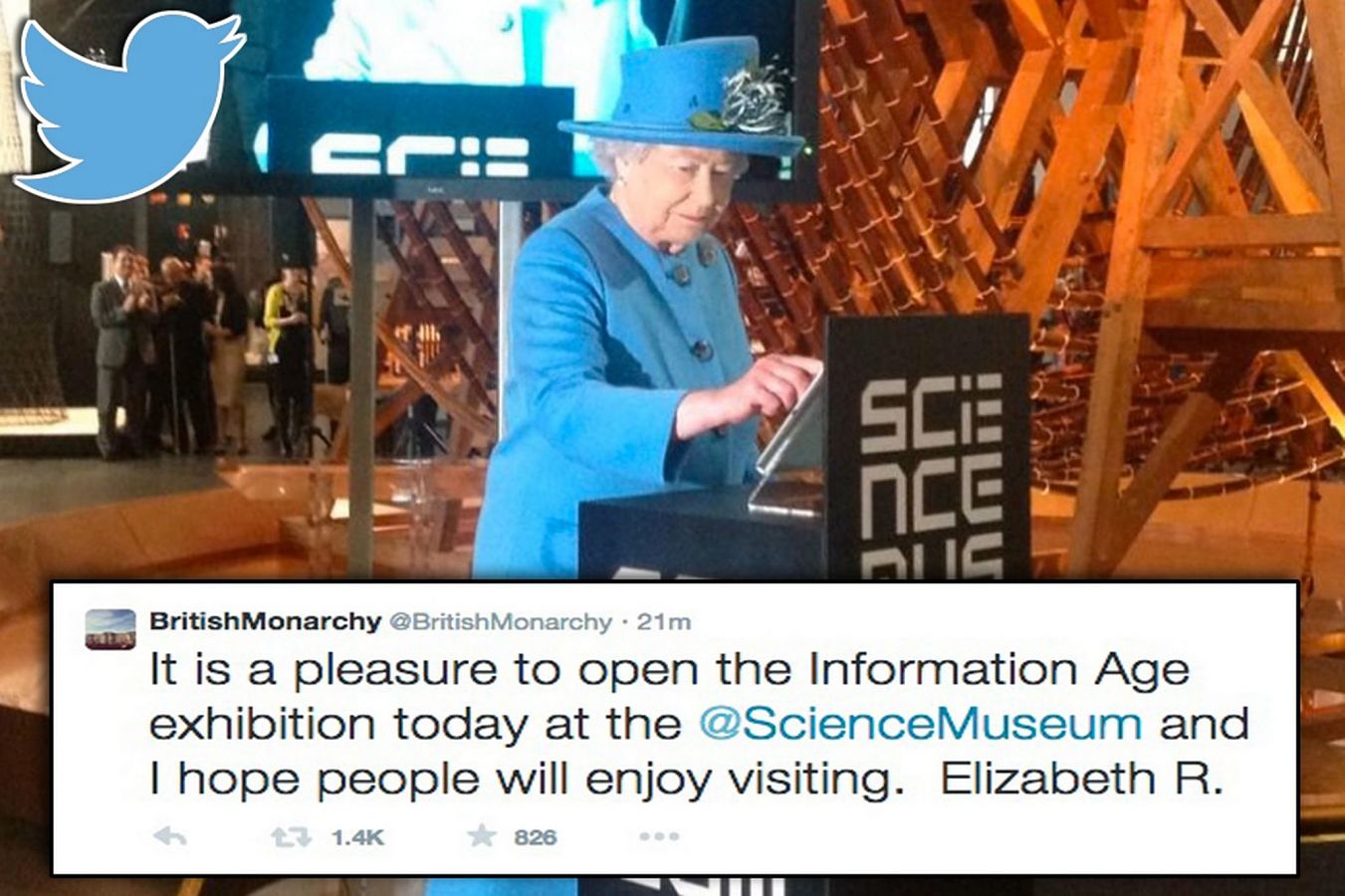Illustration credit: Khalishah Yusri
It is a pleasure to open the Information Age exhibition today at the @ScienceMuseum and I hope people will enjoy visiting. Elizabeth R.
— BritishMonarchy (@BritishMonarchy) October 24, 2014
This was the (real) Queen’s first tweet. Signing off from the @BritishMonarchy’s Twitter account, the Queen has made her mark on the virtual age. Within minutes of the message being posted it had 1,181 retweets, as is to be expected from such a British icon. The Information Age gallery, opened by the Queen, invites visitors to learn about the history of modern communications, and what better way to do that than to have a representative of the historical British Monarchy to speak to the world via one of the most up-to-date platforms of communication.
There have been a number of fake “Queen” Twitter accounts, a popular one being @Queen_UK, which, after the real Queen’s tweet, responded with “Can’t believe someone’s started a sodding parody account.” This funny response epitomises the idea of an internet persona which most people would confess to having, as it is particularly easy to speak uninhibited when you are behind a screen.
In an age where “I’m not even friends with them on Facebook” is a clear indicator of someone’s relationship (or lack thereof) with another person, it is important for the Queen to be a part of this modernity. Many long-standing groups have protested this virtualisation, with newspapers fighting to remain in print and not only online, and universities still taking exams by hand. However, this is an unrealistic battle, as technology and virtual communications have a place in most aspects of our lives.

These days, a hand-written letter is a rare occurrence saved for special occasions, and even emails are being used less for day-to-day conversations in favour of more instantaneous apps such as Facebook Messenger and WhatsApp. This has of course led to the appearance of apps like Snapchat, which truly highlight the ephemeral nature of our instant messaging. Though there can be problems regarding privacy and the spreading of personal information, electronic devices and communications are so intertwined with daily life that there is simply no going back.
There are some advantages to the “old ways”, such as the lesser likelihood of tampering, in particular regarding cheating in essays and exams, or even the simple feel of turning a page of a book rather than tapping a screen. With every generation, however, these aspects lose more and more of their appeal. Many children nowadays have a mobile phone, if not because of peer pressure, because their parents want to know they can contact them in an emergency. As children grow up surrounded by technology, it becomes the norm, and tradition becomes uncool or simply seems inconvenient. Everything these days is about instant gratification.
Google has in a sense made us lazy, in the way that there is not enough reason to try and remember facts when it is so much easier to type a question into your phone and receive an answer within seconds. Although this is clearly a convenient aspect of modern life, it shows just how dependent we are on technology, and to think of a world without it is close to unfathomable.
The world is constantly changing, and technology is always updating to become faster and better. This can seem daunting, but with the Queen, who represents such long-standing British traditions, backing such a forward-thinking concept, it is clear that the world has moved on from quill and ink, and won’t be going back.

